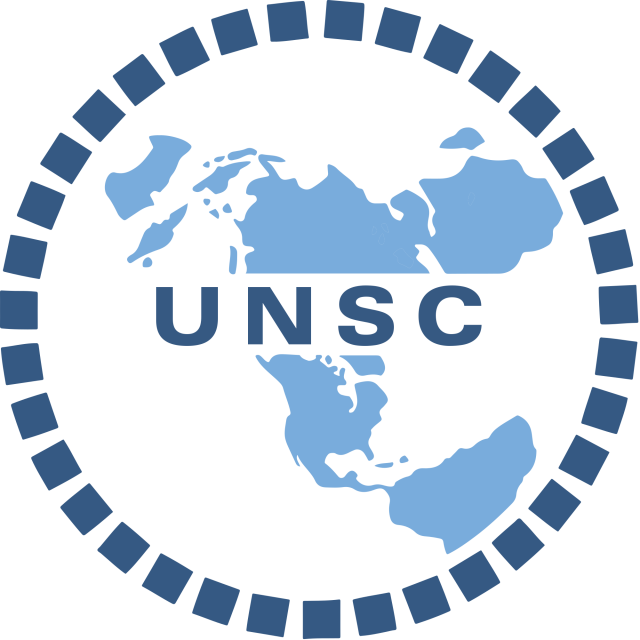Committee Overview
The United Nations Security Council (UNSC) was established in 1945 via the establishment of the UN Charter at the end of World War II. As one of the United Nations’s six principal organs, the Security Council is unique among the committees offered at NHSMUN in its membership, scope, and power. The UN Security Council has 15 member states. Five are permanent members: China, France, Russia, the United Kingdom, and the United States. The other 10 members are elected by the General Assembly for two-year terms. The UNSC has a unique, preventive, and reactionary role in the UN. It is meant to respond to international crises and maintain international peace. In response to such crises, the Council can mandate decisive actions such as peace talks, mediations, negotiations, and meetings. Additionally, according to Chapter VII of the United Nations Charter, the Council can approve the use of force if there is no other way to maintain international peace. The Security Council can also deploy UN peacekeeping operations and impose sanctions on states. Only the UNSC has this power.
Topic A: The Situation in West Africa and the Sahel
The situation in West Africa and the Sahel is a complex crisis marked by political instability, humanitarian suffering, and terrorism. In recent years, countries like Burkina Faso, Mali, and Niger have experienced military coups, with the junta leaders forming the Alliance of Sahel States in 2023. These countries withdrew from the Economic Community of West African States (ECOWAS) after the bloc pressured them to restore democratic governments. In Burkina Faso, the military junta even extended its rule, pushing back the transition to civilian governance by five more years. The humanitarian situation is dire. As of August 2024, about five million people have been displaced across several countries in the region, including Burkina Faso, Mali, Niger, Mauritania, and the coastal countries like Benin, Côte d’Ivoire, Ghana, and Togo. These displaced people face severe challenges, with many lacking access to basic necessities like food, water, and shelter. Terrorism is another key issue. Armed groups, including the Al-Qaida affiliate Jama’at Nusrat al-Islam wal-Muslimin (JNIM), have carried out brutal attacks, such as killing around 200 people in Burkina Faso in August 2024. These groups have gained control of significant areas, further destabilizing the region. Civilians are often the main victims, facing violence, displacement, and violations of their human rights. On top of all this, climate change is making the situation worse. Extreme weather events, such as droughts and floods, are harming agriculture and reducing the ability of governments to provide essential services and build infrastructure. This combination of political, security, and environmental challenges has created a deeply complex crisis in the Sahel region.
Topic B: The Situation in Myanmar
Myanmar has, sadly, endured decades of instability, civil war, and strife. For the country’s entire history as an independent state, there have been ethnic rebellions against the Burmese-led central government. Many hoped for peace after the democratic election of Aung San Suu Kyi in 2015, yet her government also saw increasing violence against the Rohingya Muslims that many have called a genocide. The modern conflict began on February 1, 2021, when the military once again took control of the government through a violent coup d’etat. Aung San Suu Kyi was arrested, and the members of her government that managed to flee formed the National Unity Government (NUG) in exile. The NUG still represents Myanmar at international institutions such as the UN, but exercises little real control over the country. However, the military, known as the Tatmadaw, has also failed to fully assert itself. It only controls about 40 percent of the country. The remaining 60 percent is controlled by a broad patchwork of ethnic rebellions and militias. These militias are fighting the Tatmadaw on several fronts—sometimes in tandem with the NUG, but sometimes not. Further, the 7.9 magnitude earthquake on March 28, 2025, revealed just how precarious the humanitarian situation is. Aid organizations have struggled to support civilians in the divided country. Now, the Security Council must determine how to navigate this complex environment to protect civilians, promote stability, and find a roadmap for peace.

